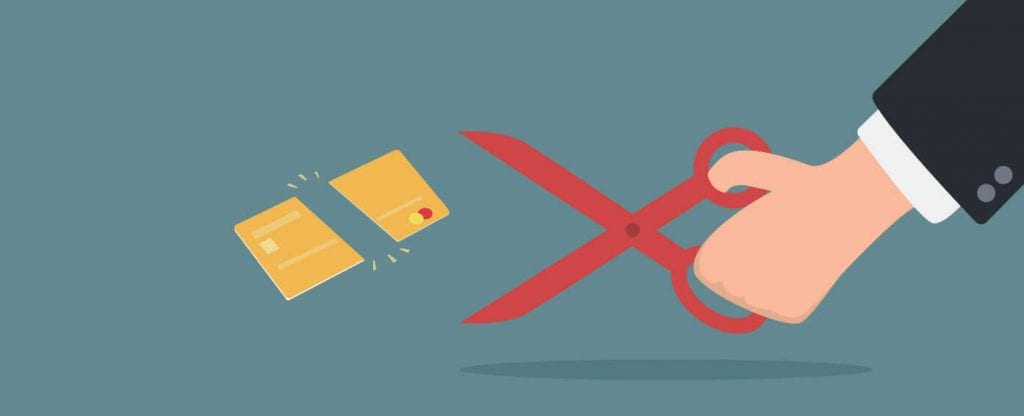
One month into the divorce process and I’d already blown through my fifteen hundred dollar retainer. Money I’d taken from a retirement fund because it was the only account my ex couldn’t see. I’d started to realize that this was going to be far more costly that I’d thought, so I began looking around for ways to save money. When my car insurance bill arrived in the mail I priced it out elsewhere and found that I could save five hundred dollars by switching.
“M, I’m going to switch my car insurance,” I told my soon-to-be-ex-husband one evening after work.
He didn’t even bother to look up from his laptop. “No.”
“What do you mean ‘no?’ It would save me a ton of money.”
“I’m still on the title, right?”
“Yes.”
“So any changes you make impact me. If you want to change your car insurance you have to go through our lawyers.”
“You’re joking.”
Long story short – he wasn’t. From my perspective it was a simple change, I wasn’t reducing coverage or upping deductibles, and the only thing changing was my monthly payment. But he insisted that my lawyer send an email to his lawyer with the two policies attached and that I get approval from him through his lawyer. It cost me a good portion of the savings that I realized from switching. He would claim that I was untrustworthy and he was just protecting himself. But it was just the beginning of the ongoing pattern of financial abuse in our divorce, and a continuation of the financial abuse during our marriage.
READ ALSO: How I Realized I Was in a Verbally Abusive Relationship
Financial abuse, also called economic abuse, takes many forms. One definition from the AllState Foundation Purple Purse is that is “prevents victims from acquiring, using or maintaining financial resources. Financial abuse is just as effective in controlling a victim as a lock and key. Abusers employ isolating tactics such as preventing their spouse or partner from working or accessing a bank, credit card or transportation. They might tightly monitor and restrict their partner’s spending. Victims of financial abuse live a controlled life where they have been purposely put into a position of dependence, making it hard for the victim to break free.”
Financial abuse can be an effective tool to keep a woman in an abusive relationship.
It is a man showing up multiple times at his partner’s job drunk and yelling at her until she gets fired and is financially dependent on him. It’s refusing to help her get their child out of the house on time, making her late for work, and thus putting her job in jeopardy. It’s insisting that all the money he makes go into his checking account, with only a measly, insulting dollar of his paycheck going into the family’s joint account. These are all real-life examples from mine and other’s lives, for the record.
It can take a myriad of forms but the end goal is the same – to use money to control and punish someone else.
Financial abuse can be an effective tool to keep a woman in an abusive relationship. In fact of the 85 percent of women who return to their abusers many cite money as being a main reason that they went back. It’s estimated that 94-99% of domestic violence victims also experience financial abuse. If a man threatens a woman’s livelihood, drains what savings she’s managed to accumulate, and puts her in the precarious position of risking being homeless with her children, what choice does she have?

I had financial resources, but not as many as my ex-husband. He made thirty thousand dollars more a year than I did. His parents paid his lawyer’s retainer and possibly more of his legal bills. When I cut off his access to me through the phone–after one bad phone call at work left me sobbing and shaking–the law became his favorite way to punish me for leaving him.
Our divorce dragged out a year and nine months–a ridiculously long time for a simple case–and cost me over $14,000 in legal fees. I was shocked to discover that there were no deadlines or checks in place in the legal system. His lawyer could take three months to respond to an email, which meant that I incurred the cost of follow-up emails and phone calls from my lawyer as she tried to figure out what was going on. He could even blow off a phone call with the judge without consequence. I had to pay for my lawyer to sit on the phone waiting for him to call in, of course.
READ ALSO: Dear Women, You Are Good With Money
At times I despaired over my financial situation and seriously considered going back to him just to make it stop. Luckily I had wonderful friends to sit me down and remind me of all the reasons that I left and some who lent me money when it got really tight. Many women aren’t as lucky and don’t have the same support networks. They go back and risk becoming one of the three women, on average, killed each day by a current or former intimate partner.
Survivors of verbal abuse can go to therapy, as I have, to rebuild our self-esteem and self-worth. We can limit our ex-partner’s contact with us, only allowing contact through email and text, like I had to do. But the sneaky thing about financial abuse when done through the law is that it’s unpredictable and unpreventable. I.e., I can’t control the expense, if he wants to send an email or phone call through his lawyer I have to respond.
Regaining control of our lives is key to survivors.
When the latest legal bill came in the mail last week I waited to open it, unable to deal with what it might contain after a long day at work. It took me two days to work up the courage to open it. Then I sagged in relief. Only $682 this month! I texted my best friend. I won’t have to charge it this month.
Regaining control of our lives is key to survivors. It’s feeling empowered and strong again, in charge of our lives and free from controlling and abusive partners. Now imagine if you never knew the amount of a large, monthly bill. Imagine if the other party could drive that bill up by forcing you to go through a lawyer for a simple request. It’s a method of keeping you destabilized and fearful.
READ ALSO: What I Promise Myself After Ending an Abusive Marriage
Every time I sit down to write about domestic abuse, whether it’s domestic violence, verbal abuse or financial abuse, I wonder why I’m digging into my past pain again. Why go there? Isn’t enough that I’m still dealing with his ongoing abuse and a legal system that views myself and my child as still tied to him? And then an old friend that I haven’t talked to in ten years calls me, sobbing, because she’s finally decided to leave her abusive husband and she’s scared and needs support. And then I remember. I write to raise awareness. I write so that other women like me will know that they’re not alone.
I write because even if he drains my bank account and even if I spend every last penny fighting to be free of him, no matter what he takes from me he can’t take my voice. And my voice, like the voice of all survivors, is strong and powerful and fierce. And I truly believe that if we unite our voices as one, if we speak up and refuse to be silenced when our words make others uncomfortable, we can bring about change. A change that is long past due.
©2011-2025 Worthy, Inc. All rights reserved.
Worthy, Inc. operates from 25 West 45th St., 2nd Floor, New York, NY 10036